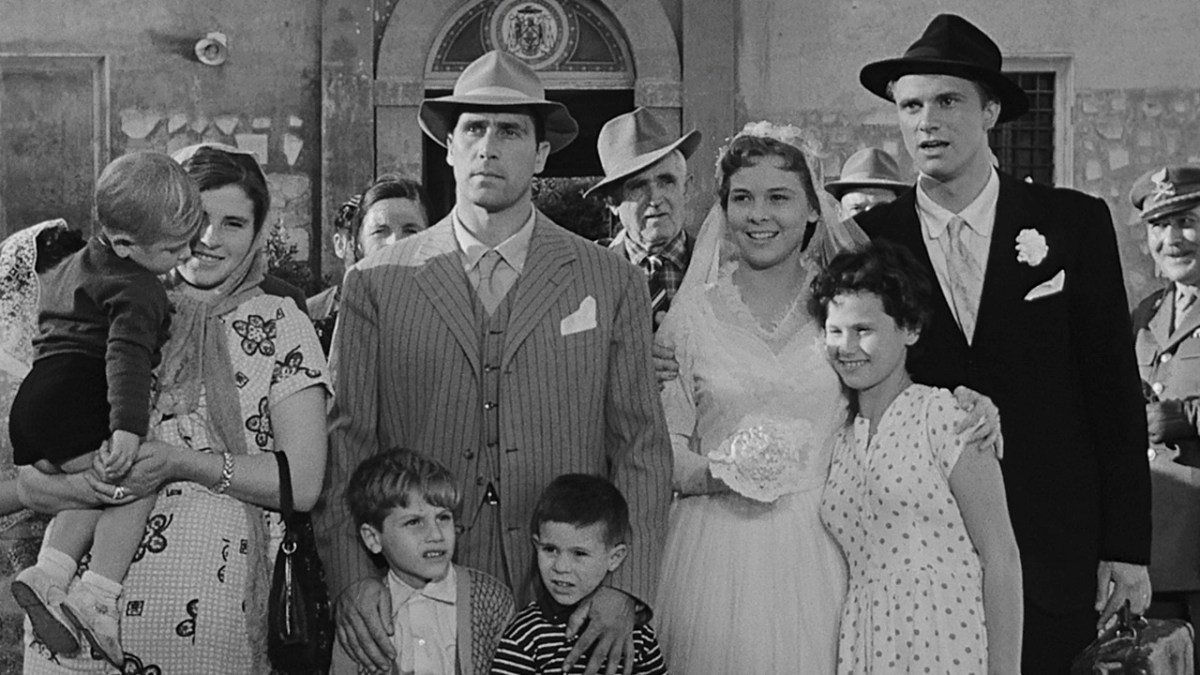Illegal makeshift houses without a roof will be torn down by the police in this underrated and heartfelt piece by De Sica, as a poor newlywed couple forced out onto the streets struggle to build theirs in time.

Review #2,584
Dir. Vittorio De Sica
1956 | Italy | Drama/Comedy | 98 min | 1.37:1 | Italian
Not rated – likely to be PG
Cast: Gabriella Pallotta, Giorgio Listuzzi, Gastone Renzelli
Plot: It is 1950s Italy, and under provincial law, occupants in illegally-constructed buildings cannot be evicted once a roof is erected. In the outskirts of Rome, in the middle of the night, a newlywed couple rushes to build a roof on a house so they can have their own home.
Awards: Won OCIC Award & Nom. for Palme d’Or (Cannes)
Source: Compass Film
Accessibility Index
Subject Matter: Moderate – Working-Class Problems; Newlyweds; Community
Narrative Style: Straightforward
Pace: Slightly Slow
Audience Type: Slightly Arthouse
Viewed: MUBI
Spoilers: No
The more I watch Vittorio De Sica’s films, the more I’m convinced that he can take any subject matter about the plight of a family and turn it into an emotionally-stirring piece about the woes of Italian society.
In The Roof, an underrated work from him, we find this melodramatic synthesis of social problems and personal affairs reaching a post-neorealist peak. Neorealism wasn’t fashionable at this point in time in the mid-1950s, but The Roof proves that the De Sica mode remains valuable.
While the visual motif of his greatest work, Bicycle Thieves (1948), is reliant on the stolen bicycle for impact, in The Roof, it is the image of half-built makeshift houses that is the subject of consternation.
“Why do we poor people always have to fight?”
According to the law, illegal houses without a roof will be torn down by the police, so the film’s newlywed couple in question, Natale and Luisa, must race against time to build a little shelter for themselves after being forced out onto the streets. Do or die, they must complete that darn roof, or else all their efforts would go completely to waste.
As such, one might find The Roof to be unexpectedly tense, and it is to De Sica’s credit that we feel this way because of his ability to give us such well-developed characters whose lives we can vicariously experience, and whose sadness and happiness are as much theirs as they are ours.
The beauty of De Sica’s film is that it is so straightforward and unadorned that what’s left is the humanity of not just Natale and Luisa shining through, but also the community of working-class heroes who believe in them enough to help them.
Grade: A-











